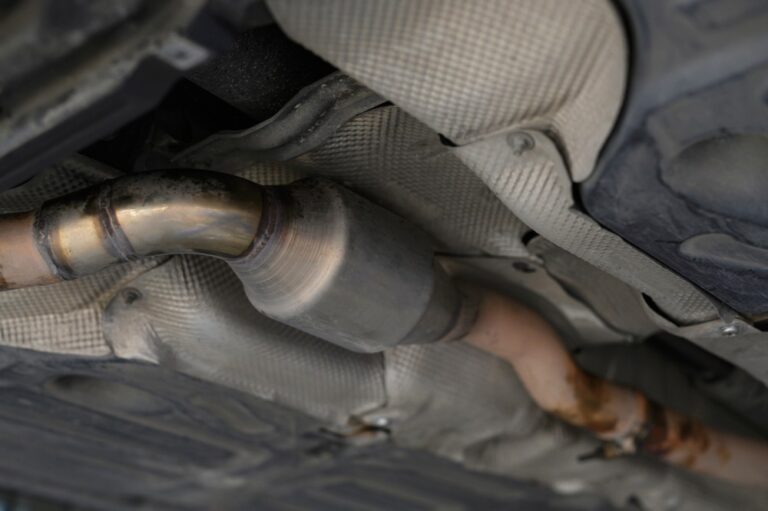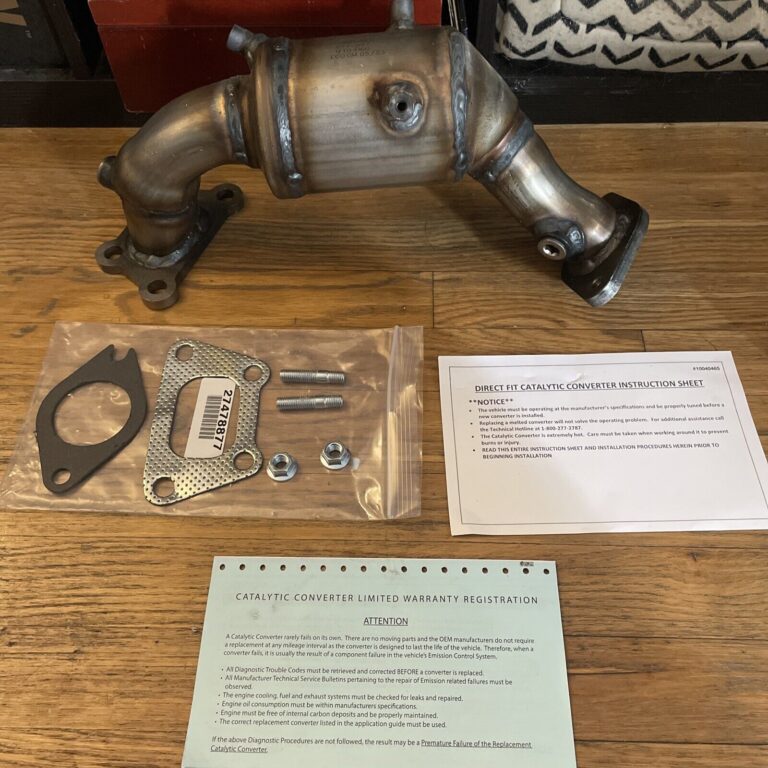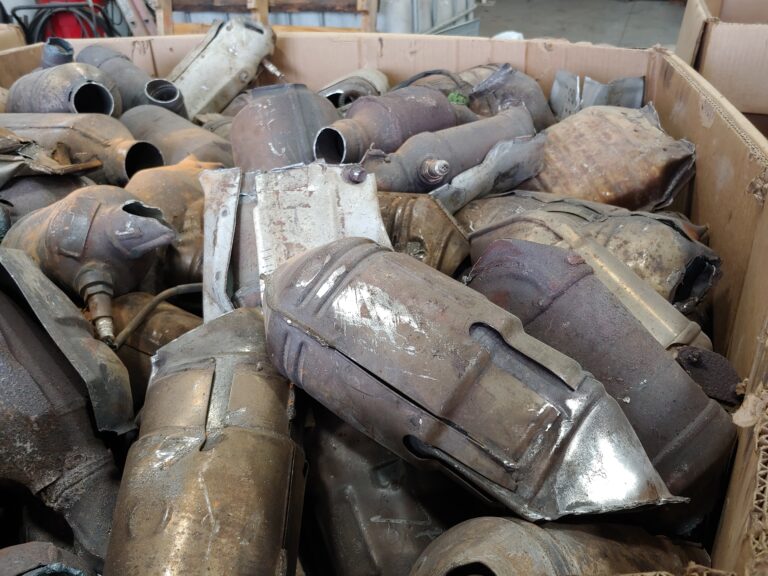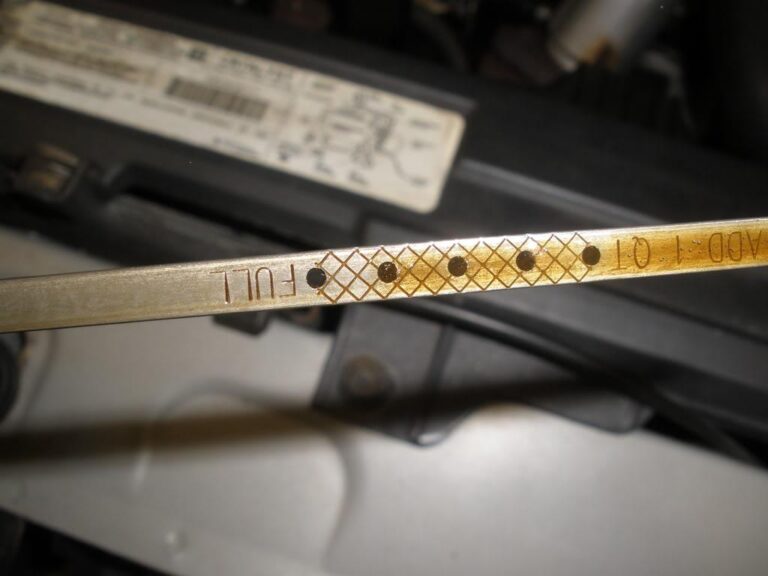Does Cutting the Catalytic Converter Affect Performance? Unleash Your Car’s True Power!
Cutting the catalytic converter can negatively impact performance by reducing the efficiency of the exhaust system. By removing the catalytic converter, the flow of exhaust gases becomes unrestricted, which may result in a loss of back pressure and torque, ultimately affecting the overall performance of the vehicle.
However, it is important to note that removing the catalytic converter may also lead to illegal emissions levels and potential environmental issues.
The Importance Of The Catalytic Converter
The catalytic converter plays a crucial role in reducing harmful emissions in vehicles. It forms an integral part of the emissions control system, which is designed to minimize the impact of vehicle emissions on the environment and human health.
The catalytic converter consists of a ceramic or metal honeycomb structure coated with a catalyst, typically made of platinum, palladium, and rhodium. When exhaust gases pass through the converter, the catalyst causes a chemical reaction that converts harmful pollutants, such as carbon monoxide, nitrogen oxides, and unburned hydrocarbons, into less harmful substances like carbon dioxide, nitrogen, and water vapor.
By limiting the release of these pollutants into the atmosphere, the catalytic converter helps reduce smog and air pollution, promoting cleaner air and improving overall air quality. It also plays a vital role in meeting emissions standards set by regulatory authorities, ensuring that vehicles comply with environmental regulations and guidelines.
Understanding The Catalytic Converter’s Impact On Performance
The catalytic converter is an integral component of a vehicle’s exhaust system. It plays a crucial role in reducing harmful emissions and ensuring compliance with environmental regulations. However, there is a common misconception that cutting or removing the catalytic converter can improve a car’s performance. In reality, this action can have detrimental effects on various aspects of a vehicle’s performance.
One factor that can be impacted is backpressure. The catalytic converter creates some level of backpressure, which helps in maintaining optimal engine performance. By cutting or removing it, the backpressure can be significantly reduced, leading to a decline in performance.
Another crucial factor is exhaust flow. The catalytic converter is designed to promote smooth and efficient exhaust gas flow. Cutting it can disrupt this flow, causing turbulence and restriction in the exhaust system, negatively affecting performance.
Overall, it is important to understand that the catalytic converter is a vital component that benefits both the environment and a vehicle’s performance. Removing or modifying it can have adverse effects on engine performance and should be avoided. Regular maintenance and proper functioning of the catalytic converter are essential for optimal vehicle performance.
Pros And Cons Of Cutting The Catalytic Converter
Benefits of removing the catalytic converter for performance enhancement:
- Increased exhaust flow: By removing the catalytic converter, the exhaust gases can flow more freely, resulting in improved engine performance.
- Reduced back pressure: The catalytic converter restricts the exhaust flow, causing back pressure, which can hinder engine power. Removing it can alleviate this issue.
- Weight reduction: Catalytic converters are heavy components. Eliminating it can reduce the overall weight of the vehicle, improving its power-to-weight ratio.
- Louder exhaust note: Without a catalytic converter, the sound produced by the exhaust system may become louder, giving a more aggressive and sporty tone.
Drawbacks and potential risks associated with removing the catalytic converter:
- Emission increase: The catalytic converter helps reduce harmful emissions. Removing it can lead to higher emissions, which may not comply with local environmental regulations.
- Legal implications: Cutting or tampering with the catalytic converter is illegal in many jurisdictions, and the penalties can be severe, ranging from fines to vehicle impoundment.
- Damage to other components: Altering the exhaust system can impact other parts, such as oxygen sensors or the engine control unit, potentially leading to malfunctions and costly repairs.
- Impact on resale value: Removing the catalytic converter can negatively affect the market value of the vehicle, as potential buyers may be hesitant to purchase a modified car.
Legal And Environmental Considerations
Removing the catalytic converter from a vehicle may have a significant impact on both legal and environmental aspects. From a legal perspective, it is important to note the regulations surrounding catalytic converter removal. In many jurisdictions, tampering with emissions-related components is strictly prohibited and can lead to hefty fines or penalties. Additionally, the consequences of catalytic converter removal may include invalidating warranties and failing vehicle inspections or emissions tests.
From an environmental standpoint, removing the catalytic converter can result in increased emissions. The catalytic converter plays a crucial role in reducing harmful pollutants in vehicle exhaust, such as nitrogen oxides, carbon monoxide, and hydrocarbons. Without this important component, the emissions released into the atmosphere can have detrimental effects on air quality and contribute to environmental pollution.
Alternative Options For Performance Enhancement
Many car enthusiasts are interested in enhancing the performance of their vehicles. When it comes to performance modifications, cutting the catalytic converter is often considered as an option. However, there are alternative options available for improving performance without removing the catalytic converter.
One option is to install an aftermarket catalytic converter. These converters are designed to have less restriction, allowing for better exhaust flow and potentially improving performance. They are available in different materials, such as high-flow metallic or ceramic substrates, which can further enhance performance.
Another option is to consider performance modifications that do not involve removing the catalytic converter. This can include upgrading the intake and exhaust systems, installing a performance chip or ECU remapping, upgrading the fuel system, or adding forced induction. These modifications can have a significant impact on performance without the need to remove the catalytic converter.
| Performance Modifications Without Removing Catalytic Converter |
|---|
| Install aftermarket catalytic converter |
| Upgrade intake and exhaust systems |
| Install performance chip or ECU remapping |
| Upgrade fuel system |
| Add forced induction |
By exploring these alternative options, car owners can improve the performance of their vehicles without having to resort to cutting the catalytic converter.
Maintaining Reliability And Longevity
Removing the catalytic converter from a vehicle can impact its performance, but it is essential to consider how to maintain reliability and longevity. Regular maintenance and tuning are crucial after removing the catalytic converter to ensure optimal performance. By mitigating potential issues and addressing the impact of removing the catalytic converter, you can preserve the overall health of the vehicle.
One of the most critical steps is to perform regular maintenance on the engine and exhaust system, including checking for any leaks or damage. Inspecting and cleaning the oxygen sensors is also essential to avoid any malfunctions. Additionally, adjusting the fuel system and ignition timing might be necessary to achieve optimal performance and compensate for the removed catalytic converter.
Due to increased exhaust flow, it is important to consider a custom tuning or engine remapping to optimize the fuel-air mixture and prevent any issues such as engine light activation or rough idling. Regular monitoring of exhaust emissions and seeking professional assistance for adjustments can help maintain reliability and longevity after removing the catalytic converter.

Credit: www.grasshoppermower.com
Frequently Asked Questions Of Does Cutting The Catalytic Converter Affect Performance
What Happens If You Cut Off Your Catalytic Converter?
Removing your catalytic converter can be harmful to the environment and your vehicle. It can result in increased emissions, reduced fuel efficiency, and potential damage to engine components. Additionally, tampering with the catalytic converter is illegal in many areas and can lead to penalties.
Will My Car Run Better If I Remove The Catalytic Converter?
Removing the catalytic converter won’t improve your car’s performance. It’s designed to reduce emissions and removing it can negatively impact the engine’s efficiency and durability. It’s also illegal in many areas and can result in hefty fines.
Will Removing Catalytic Converter Improve Gas Mileage?
Removing the catalytic converter won’t improve gas mileage. It is an essential emissions control device that doesn’t affect fuel efficiency.
Will A Cat Delete Hurt The Engine?
No, a cat delete will not hurt the engine.
Conclusion
Removing or tampering with the catalytic converter can have a significant impact on the performance of your vehicle. While it might increase the horsepower and sound of the engine, it comes at the cost of increased emissions and potential legal consequences.
Ultimately, it’s important to consider the environmental and legal implications before making any modifications to your vehicle’s emissions control system. Ensuring the proper functioning of your catalytic converter is not only beneficial for the environment but also for the longevity and efficiency of your engine.








